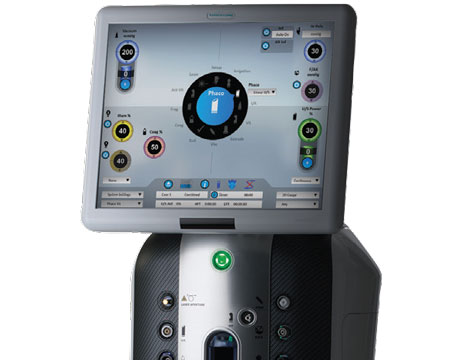One way some practices may be able to reduce costs is by switching phone service from traditional service to "Voice over Internet Protocol." VoIP sends calls over a broadband digital connection (such as the Internet) rather than analog land lines.
Here's how VoIP works. Once you chose a service to manage your calls, you place calls using either a regular phone with an adapter, a special VoIP phone that plugs directly into your broadband connection, or your computer. Some services will let you make calls without your computer even being turned on, as long as your broadband service is active. Most services will let you call anyone who has a telephone number—as well as anyone with a computer that's set up to receive a call. Charges relating to the location of the person you call (i.e., local vs. long-distance) range from completely free to per-minutes charges or flat-rate plans.
One good source of information about VoIP is the book "VOIP for Dummies," by Timothy V. Kelly, DSc, a professor for the Davis School of Business and Economics at the
Why Switch to VoIP?
Dr. Kelly notes that businesses switching to VoIP usually do so to save money and gain features. "If you're considering switching to VoIP, you first need to consider how much you're paying for traditional phone service," says Dr. Kelly. "If your average monthly cost is below $400, the savings you gain might not be worth the trouble. But many businesses spend tens of thousands on their phone bill each month, especially if they have a network of offices. I've seen savings of 35 percent or more initially, increasing to as much as 60 or 70 percent after three to six months when the staff has learned to use the new technology to maximum effect."
In terms of features, Dr. Kelly says VoIP can provide all of the features you're accustomed to, plus features not available with traditional phone service. He notes that these include high-quality video calling and conferencing; having voicemails translated into written text so you can read them on a handheld device while you're out of the office, or having the computer read your e-mails to you over the phone; and telling you whether someone you want to reach is currently on the phone. "Adding or moving employees requires no physical changes to the system," he points out. "Calls can ring at both your office phone and cell phone. You may be able to receive calls from any location while traveling, even where there's no cell phone service. And you pay no monthly charges for the use of these features."
Potential Pitfalls
Downsides to VoIP include the possibility of losing service during power outages; the fact that not all VoIP services provide a 911 connection (more information about that can be found at voip911.gov); and not all providers offer directory assistance. Dr. Kelly agrees that 911 service is problematic with some VoIP providers, but says there are simple ways to surmount that problem. "One solution is simply to keep a traditional line exclusively for 911 calls and occasional local calls," he says. "Service might cost $20 a month. Or, in some situations you can piggyback 911 calls on the dedicated line that most commercial buildings have for automatically summoning the fire department. If you own the building, all you need is a $20 switch box that allows you to use that line in an emergency."
Many potential VoIP users are also concerned about less than perfect sound quality. Dr. Kelly says sound and video quality is a function of the setup, and a higher-end provider will make sure the quality is as good or better than you can achieve through traditional phone service. "Issues with sound or video quality are usually associated with low-end services like Skype where the setup is not maximized and no one is fine-tuning your system," he explains. "Those services may only provide the equivalent of cell phone quality, and you probably don't want that in your practice. But a high-end service provider can match or exceed the quality you would get with traditional land line service."
Making the Switch
Dr. Kelly notes that some trends in medicine today are making VoIP phone service a very practical option. "I gave advice to one medical practice that was under pressure from a major insurance company to switch to electronic claim filing," he says. "Once the practice was set up to accomplish that, it became apparent that they could easily switch to VoIP phone service and save a huge amount of money.
"Using VoIP is an especially good idea if you're just setting up a new office," he points out. "When you're choosing your carpets, lighting, computers and phone service, you shouldn't even be thinking about using the older technology. One advantage, for example, is that using VoIP cuts the number of physical connections that must be installed by half, which can lead to significant cost savings right away. Besides, it's almost certain that someday all phone service will work this way.
"If you're interested in pursuing this option, invite a representative from one of the network service providers who specializes in VoIP to visit your office," he concludes.
"Find out what features they can offer you and what your cost savings could be. Check their references and talk to doctors who have already used their services to switch to VoIP." Leading high-end service providers in this field include Avaya, Cisco Systems, Micom, XO Communications and 3Com.




